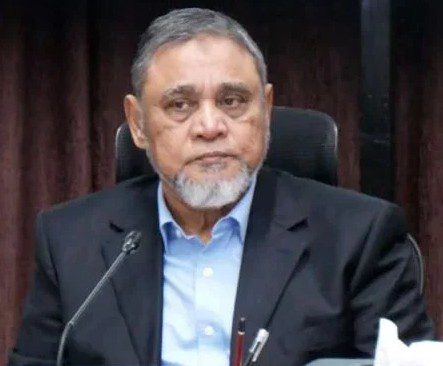Chief Election Commissioner A M M Nasir Uddin has said that Bangladesh’s next general election is likely to be held either in early February before Ramadan or in the first half of April, but the Election Commission is yet to receive any official confirmation from the government.
Speaking to BBC Bangla’s Editor Meer Sabbir, he admitted that the timeline remains unresolved and all preparations so far are based on assumptions derived from public statements made by Chief Adviser Dr Muhammad Yunus.
The CEC revealed that the EC began its preparations immediately after Dr Yunus’s 16 December 2024 address, in which he mentioned that elections may be held in either December 2025 or June 2026.
Taking the earlier option seriously, the EC started working toward a December timeline, which later shifted to February-April based on emerging political signals. He noted that the EC needs at least two months between the announcement of the schedule and polling day, and thus expects the government to inform the commission in advance.
Regarding his courtesy meeting with Dr Yunus, the CEC said there was no discussion on the exact date of the polls. Instead, the Chief Adviser only inquired about the EC’s readiness and progress.
The CEC reiterated that the meeting had no political agenda and was held to avoid speculation about a lack of contact between the election authority and the interim government. He also said he intentionally avoided asking Yunus about the election date, as such a query would have been inappropriate under the current political circumstances.
Addressing concerns about law and order, Nasir said the situation has improved significantly since last year, though he admitted that conducting the election will be challenging. He expressed confidence that if the people support the electoral process, no form of mob violence or disorder can derail it.
He also mentioned that the interim government is preparing its own deployment plans, including army and paramilitary forces, and the EC is aligning its strategy accordingly.
The CEC rejected allegations questioning the EC’s neutrality, particularly from parties like the NCP.
He described such claims as politically motivated and emphasised his personal and institutional commitment to impartiality. Referring to the oath he took on the Supreme Court premises, Nasir said he views his role as akin to that of a judge and will ensure a level playing field for all political actors. He dismissed any affiliation with BNP or Jamaat-e-Islami, calling such accusations baseless and part of political rhetoric.
On the controversy surrounding the Dhaka South mayoral verdict, where Ishrak Hossain was declared mayor by tribunal order, Nasir said the EC simply followed court directives. He explained that the tribunal was formed by the EC under the local government law, and there was no legal scope for the EC to appeal within the same structure. The matter could only be contested through the High Court or Appellate Division, not within the tribunal framework.
Regarding the suspended registration of the ousted Awami League, the CEC said that the EC had no choice but to follow the government’s directive, which barred the party from engaging in any political activity until the legal process is complete.
He acknowledged that such exclusions could raise questions about inclusiveness, but stressed that ensuring voter participation remains the EC’s key concern. He added that Awami League supporters could still vote, even if the party itself does not contest.
Nasir Uddin also explained the EC’s decision to bar any party from using Shapla (water lily) as an election symbol, citing legal complications and its status as the national flower.
Both NCP and Nagorik Oikya had requested the symbol, but the commission decided by consensus to exclude it from the list altogether. He clarified that the decision was made to avoid disputes and maintain legal consistency.
Asked about the reinstatement of Jamaat-e-Islami’s symbol Scales, Nasir said the move was based on an Appellate Division ruling that restored the party’s registration, which included its previous electoral symbol. He said the EC followed the law and the court’s instruction without prejudice.
The CEC ruled out holding local government elections before the national polls, citing logistical challenges and the historically high levels of violence in those contests. He noted that local polls are typically held in five to seven phases and can take up to a year to complete, which is not feasible ahead of the national election.
He confirmed that the EC is focusing exclusively on the parliamentary election, as per the Chief Adviser’s public remarks.
Reflecting on his role at this critical moment, Nasir said he accepted the challenge in the final phase of his career out of a desire to serve the country. He expressed hope that he would leave the post with his dignity intact and with public confidence in a free, fair, and credible election.


